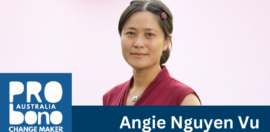ACNC Denies ‘Dysfunctional’ Claims
29 October 2013 at 10:33 am
The Australian charity regulator, the ACNC, and a number of sector leaders have strongly defended the agency’s operations after claims by some former staff that the organisation is “dysfunctional and ineffective”.
A weekend media report said the regulator had seen an exodus of investigators in its first year of operations, with former staff claiming the ACNC was dysfunctional and ineffective.
The Australian Charities and Not-for-profits Commission was set up in by the former Gillard Government in December 2012 as a "one-stop shop" for the regulation of charities.
The media report said that eight of the 10 investigators in the compliance section of the ACNC had quit since the agency started operations in December and that senior management appeared reluctant to pursue charities accused of malfeasance.
However, the ACNC and a number of sector leaders have defended the agency’s way of investigating claims against charities.
“The ACNC does have the power to to deal with serious non-compliance and currently is investigating such cases in collaboration with other regulators and federal agencies,” ACNC Commissioner Susan Pascoe AM said.
However, the regulator agreed that a number of compliance staff were no longer with the ACNC.
"Some compliance staff, including those with law enforcement backgrounds, found the transition to a civil regulator of charities with a more collaborative and less punitive approach difficult," Deputy ACNC Commissioner Murray Baird said.
"The ACNC does not investigate criminal activity as these matters are for the police."
The ACNC said to date it had received 152 complaints and 33 cases remained open.
“The ACNC’s approach begins with the presumption of honesty, allows for self correction and focuses on the improving conduct and the effectiveness of the charity,” Baird said.
No punitive action has been taken so far against any charities.
In the area of compliance, Baird said the ACNC started from scratch with a new team from a wide variety of backgrounds.
“We developed our regulatory approach over time in conjunction with the sector,” he said.
The ACNC said in a statement that there were some tensions within this team and so it engaged an independent externally qualified organisation to work with the compliance team to allow issues and concerns to be raised.
The ACNC said while it could not discuss individual circumstances some compliance staff had returned to roles in the Australian Public Service and others had accepted promotions.
The regulator said other transferred because of the uncertainty of the future of the ACNC under the new government.
Baird also denied the claim that the ACNC was inefficient and said the staff movements reflected what was happening in a new agency. Some embraced it and others did not.
The Chair of the the Not for Profit sector peak body, Community Council for Australia, Tim Costello said the claims highlighted the settling in process for the regulator.
“It’s still early days and it will take time to settle down,” he said.
He said it reflects the debate very well – that charities don’t want a heavy handed regulator.
“It was perhaps not the right call to originally hire from the ranks of former police officers.”
He said the staff changes however reflected the right choice about the future direction of the regulator in that under-resourced and overworked charities would be able to work with a “trusted body” to get their house in order.
The General Secretary of the Australian Catholic Bishops Conference, Father Brian Lucas also supported the ACNC saying the negative comments appeared to be from disgruntled former employees who may have wanted a more aggressive approach.
“It was clear to the sector when the ACNC was set up that there would be a softly, softly approach to resolving problems, giving charities the opportunity to resolve them, “ Father Lucas said.
He said it was assumed that investigating charities would be “a gradual process seeking to engage a charity to find a solution and to work on the assumption that it was ignorance rather than malice that led to any failures”.
Father Lucas’ support comes despite some religious based organisations having criticised the establishment of the ACNC. As well the new Coalition Government plans to dismantle the regulator.
Father Lucas said there was a lot of discussion about the future of the ACNC and his personal view was that there was room for compromise and that the good features including the registration of charities would be kept.
“We need a way to find the best features and restructure it in some fashion,” he said.
The criticism of the ACNC came as the charity regulator released its first annual report outlining its work over the last seven months.
The report says a number of highlights included:
700 charities were newly registered by the ACNC between 3 December 2012 and 30 June 2013;
Of these, 78 per cent were small charities, 12 per cent were medium and 10 per cent were large;
Children and youth were amongst the most popular beneficiaries of the 700 charities;
57,672 charities were listed on the ACNC Register at June 30, 2013 and the Register had more than 85,000 pageviews;
It took 11.7 days on average for the ACNC to register a charity and it answered 16,373 telephone calls and received 28,231 correspondence items.
Read the full report on the ACNC website or download and print the PDF report [2.5MB].







